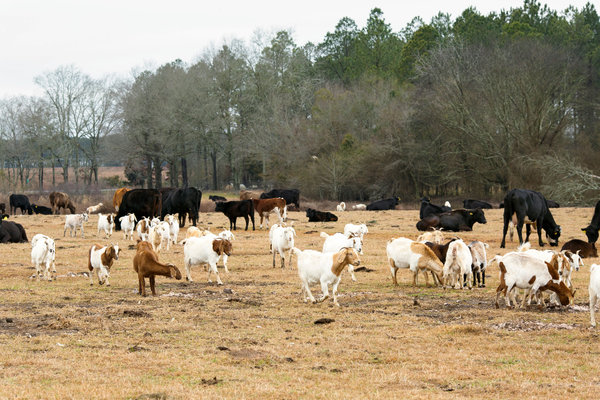
At White Oak Pastures, Grass-Fed Beef Is Only the Beginning
BLUFFTON, Ga. — Here in the cab of a muddy pickup truck, with a stubby Ranch Hand rifle on the console and windows so fogged it’s hard to see the ruts in the pasture, you tend to believe anything the driver says.
Like, for instance, that religion and social niceties have never been that important to the men who have raised cattle on this fertile slice of southwest Georgia since the end of the Civil War.
“We’re irreverent, profane, we talk too loud, we drink too much and we cheat to win,” William Harris III said.
March 16, 2015 | Source: The New York Times | by Kim Severson
BLUFFTON, Ga. — Here in the cab of a muddy pickup truck, with a stubby Ranch Hand rifle on the console and windows so fogged it’s hard to see the ruts in the pasture, you tend to believe anything the driver says.
Like, for instance, that religion and social niceties have never been that important to the men who have raised cattle on this fertile slice of southwest Georgia since the end of the Civil War.
“We’re irreverent, profane, we talk too loud, we drink too much and we cheat to win,” William Harris III said.
The line is a particular brand of artful Southern swagger, one Mr. Harris has repeated countless times in his 60 years. It’s part of the charm that has allowed a man whose family business was built on conventional, chemical-driven cattle rearing to become one of the most successful purveyors of grass-fed, humanely raised beef in the country, certainly in terms of sheer popularity and name recognition.
Mr. Harris, who lists both the writer Wendell Berry and the Confederate general Robert E. Lee as heroes, has been the star attraction at Slow Food dinners and progressive agricultural conferences. He has been awarded just about every plaque and ribbon they hand out for agriculture and conservancy in Georgia.
If the Southern organic crowd were made up of teenage fan girls, he would be their Justin Bieber.
With two of his three daughters and about 100 cowboys and meat cutters, Mr. Harris operates White Oak Pastures, the largest organic farm in Georgia and the South’s most diverse. He grows vegetables and raises 10 species of animals, most of which roam around in a model of farming based on the way animals graze on the Serengeti plains. Goats goof off near a pile of sleeping hogs. Chickens wander past cows. Sheep hang out with ducks. The idea is that together, the animals make a stronger ecosystem. Some eat certain plants but not others. Some species eat the feces of others. All totaled, the animals and pasture are healthier for it.
Recently, Mr. Harris and some partners were among the first Americans to import Iberian pigs from Spain. He hopes to fatten them on nuts from old pecan trees and turn them into an American version of jamón Ibérico, which can bring in over $100 a pound.
“I can’t imagine going back to just raising cows,” he said. “It’d be like watching one channel of black-and-white TV.”
White Oak Pastures has another thing going for it. It’s the only farm in the country with federally approved slaughterhouses, or abattoirs, for both poultry and mammals. Temple Grandin, the animal scientist, helped with the design.
